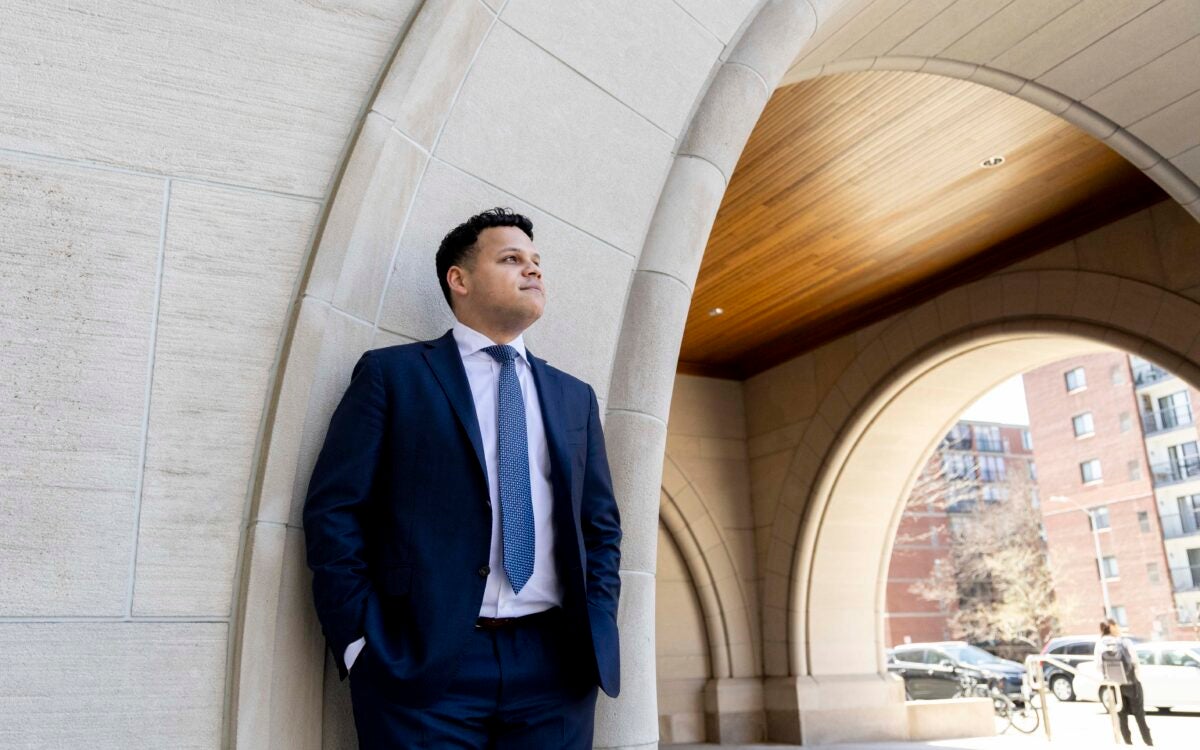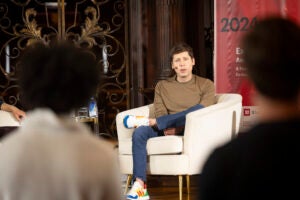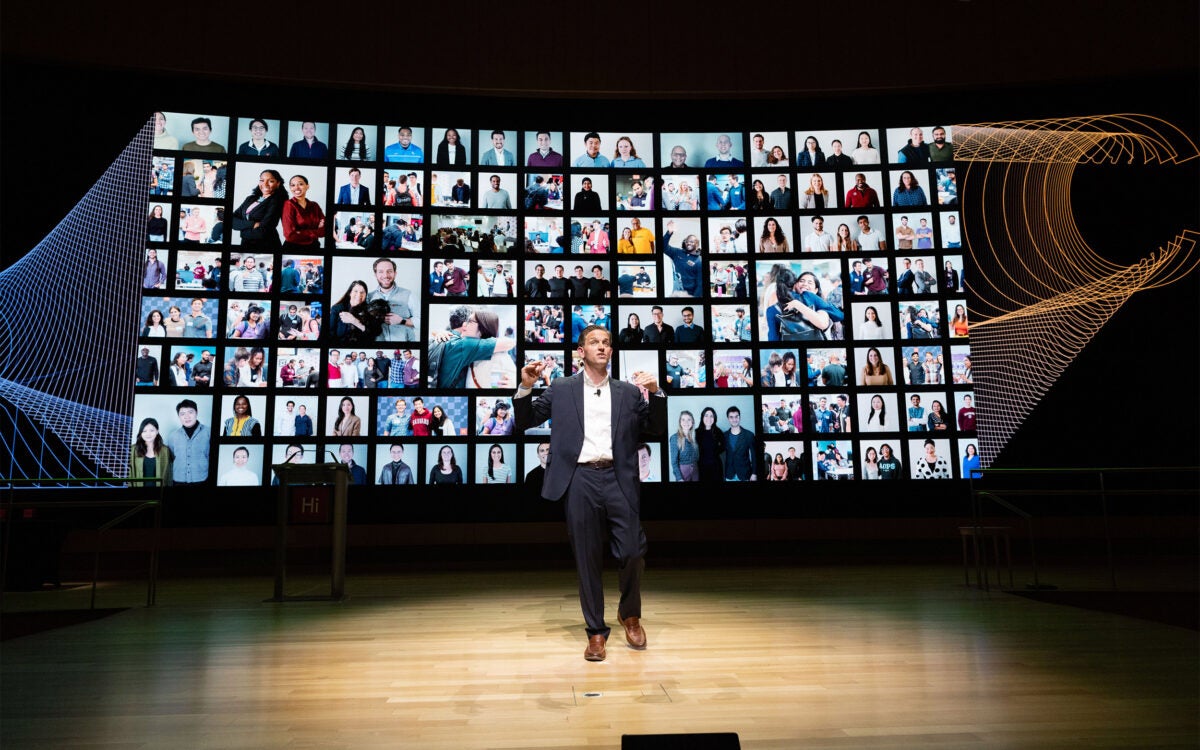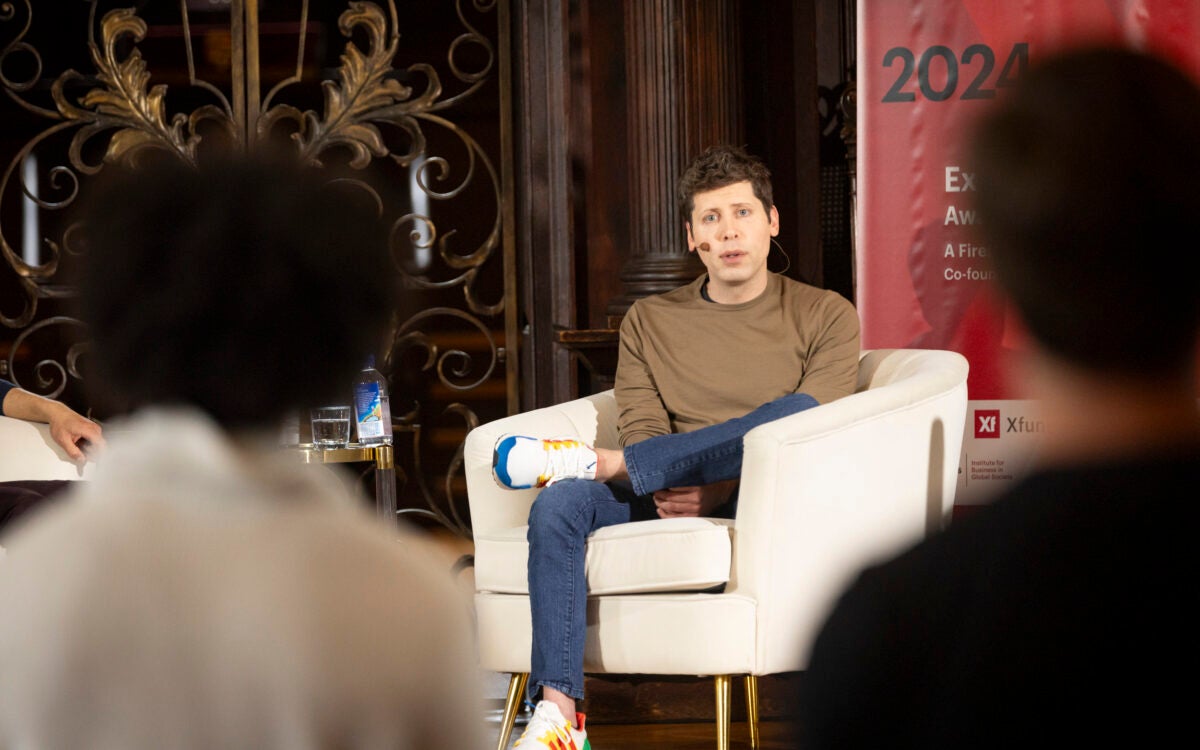Barbara J. Grosz named interim dean of the Radcliffe Institute for Advanced Study
Barbara J. Grosz, Higgins Professor of Natural Sciences in the Faculty of Arts and Sciences’ School of Engineering and Applied Sciences and dean of science at the Radcliffe Institute for Advanced Study, will serve as interim dean of Radcliffe, effective July 1, 2007, President-elect Drew G. Faust announced today (May 11).
“Barbara has played a critical role in almost every aspect of the evolution of the Radcliffe Institute,” said Faust. “She has been enormously effective as the architect of the science programs, building a highly successful model for science fellowships that incorporates laboratory research, fosters engagement with the broader scientific communities at Harvard and in Boston, and encompasses a wide range of scientific fields.
“I have been impressed from day one with Barbara’s creativity, drive, and ability to move comfortably between the most esoteric realms of science and the practical challenges of building a program from the ground up,” Faust continued. “Barbara has proved herself to be a leader, a manager, and an entrepreneur of particular vision and skill. I am delighted that she has agreed to lead the Radcliffe Institute during the next academic year.”
Known for her seminal contributions in the field of artificial intelligence, Grosz developed some of the earliest and most influential computer dialogue systems and established the research field of computational modeling of discourse. Her work on computational models of collaboration helped launch that field of inquiry and provides the framework for several collaborative multiagent systems and human-computer interface systems. Grosz has served as dean of science at the Radcliffe Institute since September 2001. She has also served in a variety of administrative and leadership roles at Harvard, including as chair of Harvard’s Task Force on Women in Science and Engineering in 2005.
“I am deeply honored by the confidence President-elect Faust has placed in me,” said Grosz. “We have worked closely together for the past six years, and Drew has been enormously supportive of my efforts to build a science program that attracts leading scientists from around the world to the fellowship program and engages the Harvard community in its lectures, symposia, and exploratory seminars. I look forward to working with the outstanding team at Radcliffe to build on the momentum established during Drew’s deanship. This time has been characterized by the high quality, breadth, and international reach of the fellowship program; Radcliffe’s enrichment of intellectual life at Harvard; exemplary stewardship of the Schlesinger Library; and ever-growing energy and creativity among the scientists, scholars, and artists who come together at Radcliffe to work across the boundaries of traditional disciplines.
“It is a particular pleasure that I will undertake these efforts as Drew enters her first year as president,” continued Grosz. “These are very exciting times at Harvard – extraordinarily so for cross-disciplinary efforts – and I look forward to being part of the team that will work with Drew and Provost Hyman to advance the University’s ambitious agenda.”
Grosz is widely respected for her contributions to the advancement of women in science. As chair of Harvard’s 2005 Task Force on Women in Science and Engineering, she led efforts to analyze and make recommendations for building and sustaining the participation of women in academic science and engineering from undergraduate studies to graduate and postdoctoral work to advancement through faculty ranks. She also chaired the FAS Standing Committee on the Status of Women that produced the 1991 report, “Women in Science at Harvard – Part I: Junior Faculty and Graduate Students.” More recently, she was a member of the National Academy of Sciences’ Committee on Maximizing the Potential of Women in Academic Science and Engineering.
“Barbara is both an outstanding scientist and an outstanding scientific leader,” said Provost Steven E. Hyman. “In her 20 years at Harvard, she has been an intellectual leader in her field and a presence in every major discussion of what we need to do at Harvard and nationally to support the advancement of women and other underrepresented groups across the scientific disciplines. I look forward to working with Barbara in her new role as interim dean of Radcliffe.”
A pre-eminent researcher in the areas of natural language processing and multiagent systems, Grosz has been a member of the Faculty of Arts and Sciences since 1986, first as the Gordon McKay Professor of Computer Science, and more recently as Higgins Professor of Natural Sciences. Her research focuses on finding ways to make computers behave more intelligently, and she has written influential papers on techniques for enabling computer systems to participate in dialogues in natural languages, such as English, and for building systems that act collaboratively.
Since assuming the post of science dean at Radcliffe in 2001, Grosz has recruited to the institute a diverse group of leading scientists, including experimentalists as well as theorists, in a wide range of scientific fields. Every year, Radcliffe welcomes 50 outstanding scholars and artists for a year-long fellowship. Approximately one-quarter of the fellows are scientists, engineers, or mathematicians, a dramatic increase since the institute’s founding in 2001, when there were only five fellows in science. During their time at the institute, fellows work closely with Harvard faculty and students and with each other. Some fellows come in small groups or “clusters,” scholars and scientists who work closely with each other on a particular topic. Science clusters have addressed such topics as randomness and computation, cosmology and theoretical physics, and the logical foundations of linguistics.
Under the leadership of Grosz, the science program has grown to include lectures, panel discussions, symposia, and exploratory seminars on a wide range of cutting-edge scientific topics. Recently, Grosz noted in an interview that potential future topics for the science symposia and science lecture series include the origins of life; Earth, planetary and atmospheric sciences; and neurodegenerative diseases.
Grosz has been elected to the American Philosophical Society and the American Academy of Arts and Sciences and is a fellow of the American Association for Artificial Intelligence (AAAI), the Association for Computing Machinery, and the American Association for the Advancement of Science. She received the UC Berkeley Computer Science and Engineering Distinguished Alumna Award in 1997, the AAAI Distinguished Service Award in 1999, and the Donald E. Walker Distinguished Service Award of the International Joint Conferences on Artificial Intelligence (IJCAI) in 2001. She has been president of the AAAI, a member and chair of the board of trustees of the International Joint Conferences on Artificial Intelligence Inc., chair of IJCAI-91, a member of the Computer Science and Telecommunications Board of the National Research Council and of the Advisory Committee for the CISE directorate of the National Science Foundation, and on the boards of directors of the Computing Research Association and the International Foundation for Multiagent Systems.
Before joining the faculty at Harvard, Grosz was a senior staff scientist and director of the Natural Language and Representation program in the AI Center at SRI International and co-founder of the Center for the Study of Language and Information. She received an A.B. in mathematics from Cornell University and a Ph.D. in computer science from the University of California, Berkeley.




